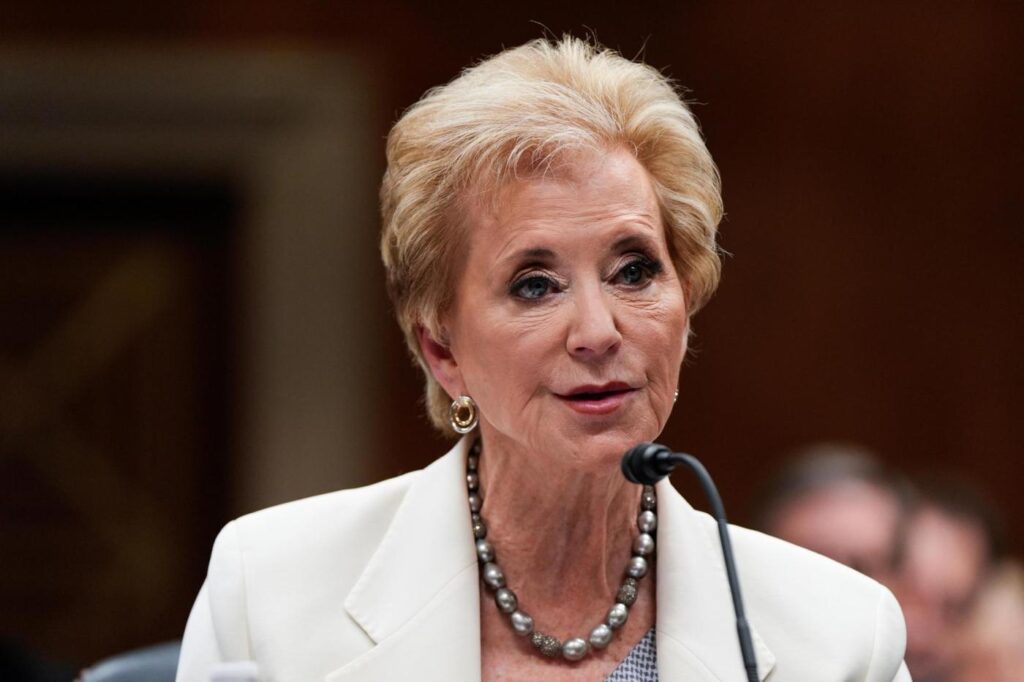
UPDATE: In a shocking move, U.S. Secretary of Education Linda McMahon confirmed today that the Trump administration plans to transition key responsibilities of the U.S. Department of Education to other federal agencies, signaling a bold step toward dismantling the department entirely. This announcement comes just days after McMahon declared that the recent 43-day government shutdown demonstrated the department’s unnecessity.
McMahon’s controversial statements suggest that the shutdown proved “how unnecessary” the department is, claiming, “Students kept going to class. Teachers continued to get paid.” However, education experts are raising alarms about the implications of such drastic changes.
Following the shutdown, McMahon outlined plans to transfer responsibilities such as Title I federal funding for low-income schools, higher education grants, and civil rights enforcement to the State Department, the Department of the Interior, the Department of Labor, and Health and Human Services. Critics argue that these changes could disrupt essential services and lead to greater inequities in education.
Professor Patrick McGuinn from Drew University countered McMahon’s claims, stating, “The Department of Education was created to increase efficiency and empower states.” Established in 1979, the department aimed to address significant socioeconomic and racial achievement gaps, which have historically plagued U.S. schools.
Education economist Nora Gordon from Georgetown University emphasized the vital role of federal oversight, stating, “Investing in education is crucial for the future of democracy.” The federal government supports states through funding and civil rights law enforcement, ensuring that tax dollars are equitably distributed, especially to lower-income areas.
During the shutdown, nearly 87% of the education department’s 2,447 employees were furloughed, halting critical civil rights enforcement and leaving over 25,000 cases backlogged. This disruption caused chaos in Head Start programs, which serve over half a million low-income children nationwide, threatening their stability and access to education.
Despite McMahon’s assurances that federal support would continue, experts warn that transitioning responsibilities could lead to bureaucratic delays and a loss of institutional knowledge. “I’m very concerned about the equity implications of all of this,” McGuinn stated, highlighting potential long-term impacts on educational equity due to weakened federal oversight.
As the administration pushes forward with its plans, the debate over the role of federal governance in education intensifies. Observers are left to wonder: what will this mean for the future of U.S. education, and how will families navigate the challenges presented by a fragmented system?
The situation remains fluid, with more developments expected in the coming days. Stay tuned for updates as this urgent story unfolds.






